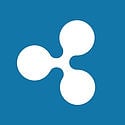Highlights
The global economy remains on track to grow at roughly the same pace as last year despite the moderation in China. Other emerging economies (outside of OPEC) will pick up the slack, helped by cheap oil and more competitive currencies versus the USD. Advanced economies should also do better than last year, driven by the US, the Eurozone and Japan. All of that, however, assumes governments manage to stave off major risks, including a Greek debt default, which threaten to derail global growth.
After a difficult start to the year, the US economy is set for a quick rebound. While trade will remain under pressure from the strong dollar, domestic demand should strengthen further on the back of solid fundamentals particularly for the consumer. Record corporate profits and an improved economic outlook also bode well for business investment. Moreover, the housing market has potential to improve thanks to the reported easing in lending conditions. We continue to expect the world’s largest economy to register close to 3% growth this year.
Canada’s disappointing first quarter is partly due to temporary factors that will dissipate in Q2. If the oil collapse of 2008 is any guide, one can expect the impact on investment to be somewhat delayed rather than front-loaded as the Bank of Canada seems to believe. So, there may be some downside risks to the central bank’s call for above-potential growth of 2.7% on average in the second half of the year.
This presentation may contain certain forward-looking statements about the 2009 Economic and Financial Outlook. Such statements are subject to risk and uncertainties. Actual results may differ materially due to a variety of factors, including legislative or regulatory developments, competition, technological change and economic conditions in Canada, North America or internationally. These and other factors should be considered carefully and readers should not rely unduly on National Bank of Canada’s forward-looking statements. This presentation may not be reproduced in whole or in part, or further distributed or published or referred to in any manner whatsoever, nor may the information, opinions or conclusions contained in it be referred to without in each case the prior express consent of National Bank.
Recommended Content
Editors’ Picks
EUR/USD retreats below 1.0700 after US GDP data

EUR/USD came under modest bearish pressure and retreated below 1.0700. Although the US data showed that the economy grew at a softer pace than expected in Q1, strong inflation-related details provided a boost to the USD.
GBP/USD declines below 1.2500 as USD rebounds

GBP/USD declined below 1.2500 and erased the majority of its daily gains with the immediate reaction to the US GDP report. The US economy expanded at a softer pace than expected in Q1 but the price deflator jumped to 3.4% from 1.8%.
Gold drops below $2,320 as US yields shoot higher

Gold lost its traction and turned negative on the day below $2,320 in the American session on Thursday. The benchmark 10-year US Treasury bond yield is up more than 1% on the day above 4.7% after US GDP report, weighing on XAU/USD.
XRP extends its decline, crypto experts comment on Ripple stablecoin and benefits for XRP Ledger

Ripple extends decline to $0.52 on Thursday, wipes out weekly gains. Crypto expert asks Ripple CTO how the stablecoin will benefit the XRP Ledger and native token XRP.
After the US close, it’s the Tokyo CPI

After the US close, it’s the Tokyo CPI, a reliable indicator of the national number and then the BoJ policy announcement. Tokyo CPI ex food and energy in Japan was a rise to 2.90% in March from 2.50%.